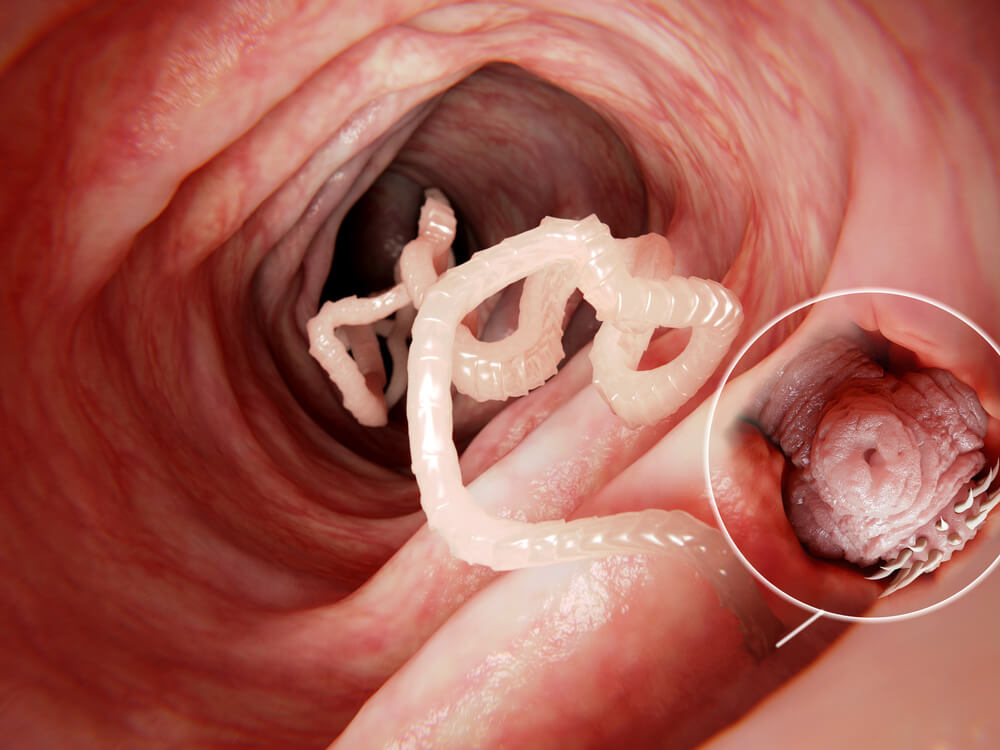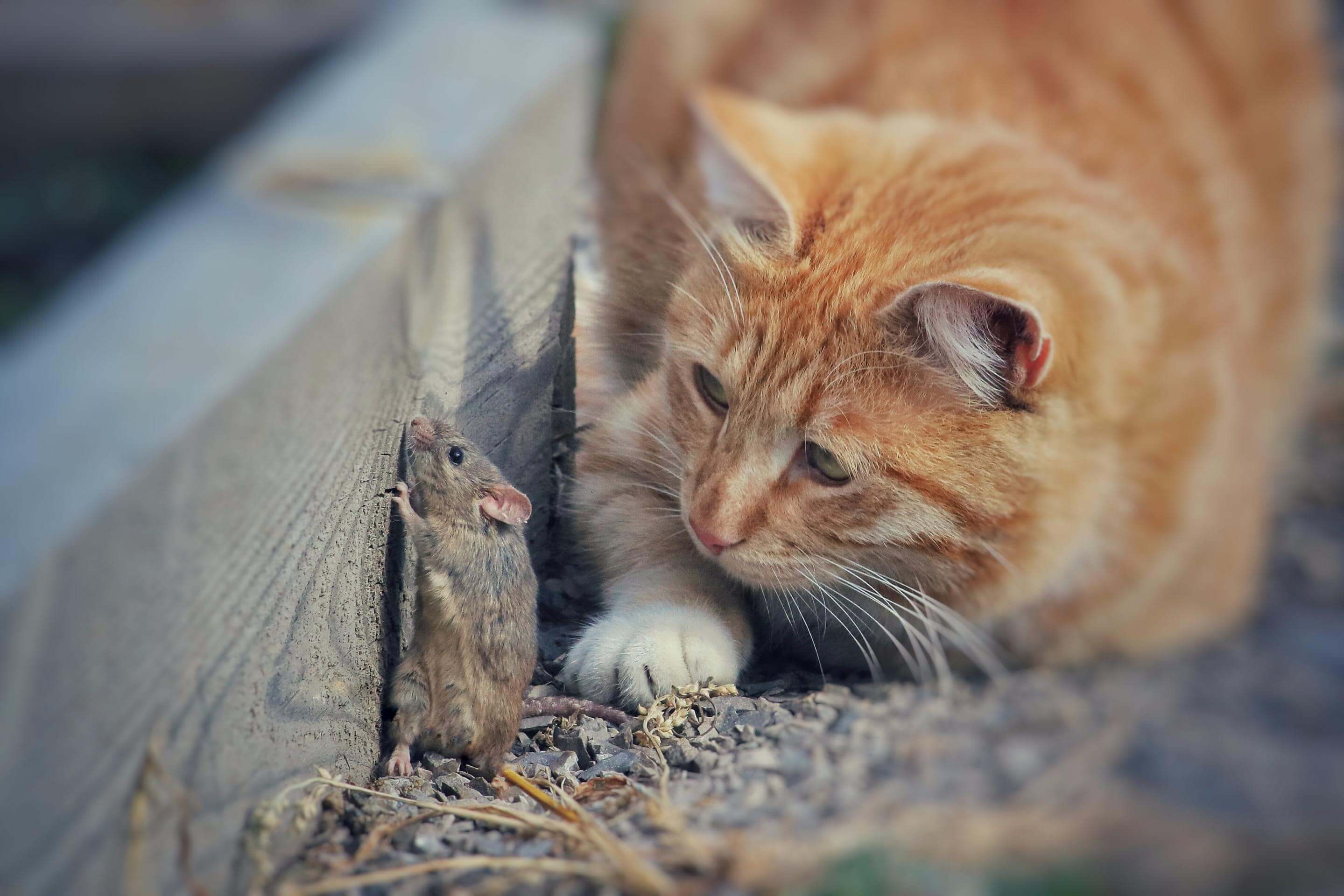As the human-animal bond grows, our pets are spending more time on our couches and in our beds. And, while having our furry friends so close might be good for our emotional health, it could take a toll on our physical health.
What is a zoonotic disease?
A zoonotic disease is an infection that can be spread between people and animals. Regular veterinary visits, preventive vaccinations and medications, and good hygiene habits are key factors in preventing transmission of these diseases. Zoonoses are most commonly seen in young children. In addition to viruses and bacteria that can be transmitted to people from their furry friends, intestinal parasites can also be easily transmitted. There are several types of intestinal parasites (worms) that we have be on the lookout for:
- Roundworms
- Hookworms
- Tapeworms
- Toxoplasma gondii (toxoplasmosis)

Roundworms
Also called spaghetti worms, roundworms are the most common intestinal parasite. Young puppies and kittens tend to have a heavy parasite load, since these worms can be passed from mom to babies before they’re born. Also, young pets can be messy while learning appropriate elimination habits, so they can easily reinfect themselves with roundworms.
Passing these worms on to humans is simple. After all, who can resist cute puppy kisses? Roundworm eggs can hang out on an animal’s tongue, ready to migrate to organs, eyes, and the brain in people. In general, roundworms are spread through the fecal-oral route. Any fecal material containing roundworm eggs can cause the infection to spread when it is ingested.
To prevent spreading roundworm infections:
- Deworm puppies and kittens every 2 weeks until they can receive a monthly preventive product.
- Promptly remove animal feces from the yard or litter box.
- Monitor children playing outside in sandboxes or parks. They can easily put items in their mouths that have been contaminated with roundworm-loaded fecal material.
- Keep an eye on pets while outdoors. Roundworms can also be transmitted when an animal eats an infected rodent or grooms after a messy bowel movement.

Hookworms
A scary parasite, hookworms are commonly picked up at beaches, under houses, in the garden or landscaping, on the farm, and anywhere potentially contaminated soil exists. When an animal passes on hookworm larvae through wet sand or soil, people can contract an infection through their skin or by ingesting contaminated soil.
Once a person is infected, the hookworm can cause an itchy skin condition known as cutaneous larva migrans, which will eventually clear on its own. Some species of hookworms can also travel to the intestines and cause a painful intestinal disorder in people.
Hookworm prevention is similar to roundworm prevention. In addition to the roundworm prevention steps listed, make sure to wash your hands or body well after coming into contact with wet soil or sand. After a trip to the beach or a day in the garden, scrub off all traces of sand and soil.

Tapeworms
If you see what looks like little grains of rice around your pet’s rectum, you’re actually seeing segments of a tapeworm. These segments can cause itching, diarrhea, weight loss, and abdominal pain.
When it comes to prevention, treatment, and transmission, tapeworms are in their own special class. This parasite is transmitted when an animal eats an infected flea or rodent, or when uncooked pork or beef is consumed (no poop necessary for this one).
The best prevention for this disease is a high-quality flea preventive. Talk to us about the best product for your pet.

Toxoplasmosis
A protozoan parasite reserved for our feline friends, toxoplasmosis (T. gondii) can be transmitted when cats eat infected rodents or other mammals, or when they ingest contaminated fecal material. Humans can become infected by ingesting food and water contaminated with infective fecal material or eating undercooked meat from infected animals. It can also be passed from mother to child through uterine transmission.
Most people exposed to T. gondii don’t show any signs, but when a pregnant woman passes the disease to her unborn child, that child can experience mental retardation, blindness, epilepsy, and even death. Immunocompromised people tend to be most affected by this parasite, so they should not clean litter boxes. Pregnant women should also avoid this task. Additional ways to prevent this disease from spreading include:
- Keep cats indoors to prohibit them from eating infected rodents.
- Avoid feeding cats raw meats.
- Wash litter boxes with hot water.
- Wear gloves when gardening.
- Cover children’s sandboxes (“giant litter boxes”) when not in use.
- Wash hands thoroughly after exposure to sand, soil, raw meats, and unwashed vegetables.
A regular deworming protocol is a must to combat these potentially deadly parasites and to keep them from spreading. If you would like more information, have questions, or would like to schedule an appointment, please contact us or schedule an appointment.

